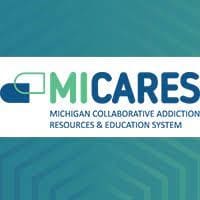Breaking through the applications barrier for addiction medicine
Nearly 500 physicians across 46 states and the District of Columbia and Puerto Rico have used a Michigan-based program to help become board certified in addiction medicine, and its architects hope to expand to all 50 states. The program, MI CARES, was launched in 2018 and helps physicians meet eligibility requirements for certification in addiction medicine through a Practice Pathway eligibility rather than the Accredited Council of Graduate Medical Education (ACGME) fellowship training in addiction medicine. MICARES now is seeking to add physicians from Delaware, Hawaii, Missouri and South Dakota.
“It’s a technical point, but insufficient documentation of practice activities is the biggest reason for application rejection,” said Cara Poland, MD, who directs MI CARES. “We develop robust tools that emulate the actual application, and we can also track hours and draft addiction medicine practice activities. Participants benefit from one-on-one support via video calls, emails, and we even review their practice descriptions prior to applying. And there is no cost to using MI CARES.”
Dr. Poland said that MI CARES helps guide and support physicians and other health care professionals through the Practice
Pathway program for the Addiction Medicine sub-specialty. The program operates in a team-based approach with addiction medicine physicians, public health specialists, researchers and pharmacists. In 2020, with MI CARES assistance, 51 physicians passed the exam to become board certified as addiction medicine specialists. Of these 51, 5 had previously been denied approval to sit for the exam. Dr. Poland estimated that approximately 50% of applications are rejected and returned to physicians due to insufficient documentation of addiction medicine

specialization in their practice. Several physicians’ experiences highlight this:
- “I have lots of practical experience in addiction and recovery but lacked much of the knowledge of the science of addiction neurobiology and the best practices for evidence-based addiction treatment,” said Glen Dregansky, DO, a family physician and addiction medicine specialist in Battle Creek, Michigan. “[But] without a doubt, completing the documentation to qualify to take the exam was the most difficult part. Compiling the data and getting it submitted was daunting.”
- “The professional experience I had that made me eligible for the addiction medicine practice pathway was done through a few different organizations and covered several different types of work and responsibilities. This made it a challenge to fill out the ABPM application and to ensure that I was portraying my experience in a way that was accurate and clear to the Board, said Sylvie Stacy, MD, a preventive medicine and addiction medicine specialist in Birmingham, Alabama. “The MI-CARES resources and staff members were a huge help in assisting with this. My application was accepted without the need for revisions or additional information.”
- “The review modules were really well done and a great supplement to the other materials that I used to prepare for the exam”” said Diana Bui, MD, who practices in Los Angeles. “They helped to highlight areas that I needed to focus my studying efforts, helped me review my log of patients and had excellent suggestions of how to prepare for my board application as well as how to prepare for the boards.”
“MI CARES works because it breaks down barriers that our participants commonly experience by providing targeted technical support and coaching that helps physicians through the ABPM application process,” said Dr. Poland. “We’re committed to help building a highly trained addiction medicine workforce in every state.”
Dr. Poland also emphasized that physicians in any state can study addiction specialization online while continuing to practice medicine in their home state.
Learn more about MI CARES.